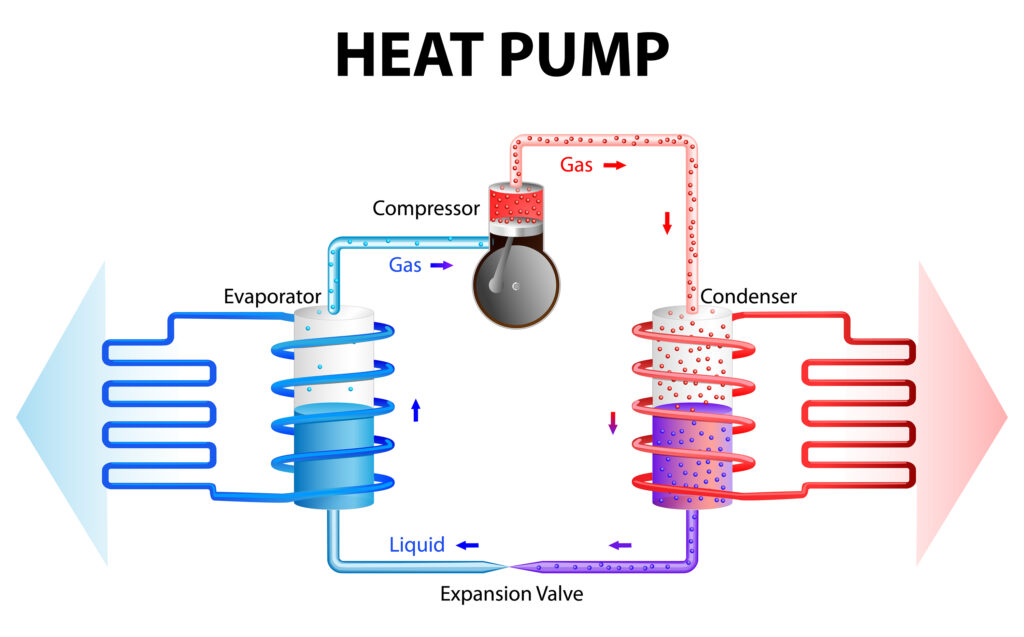Heat pumps are an increasingly popular choice for commercial and industrial buildings seeking to reduce their carbon footprint. Heat pumps are a type of mechanical system that uses a small amount of electricity to transfer heat from one location to another. They are commonly used to heat and cool buildings, and can be an effective way to reduce energy consumption and lower carbon emissions.
One of the main benefits of using heat pumps in commercial and industrial buildings is that they are highly efficient. Unlike traditional heating and cooling systems, which rely on burning fossil fuels to generate heat, heat pumps use electricity to move heat. This means that they can provide the same level of heating or cooling with a much smaller amount of energy, thus reducing energy costs over the long term.
Heat pumps will also function in cold climate weather, thanks to advances in technology. In the past, heat pumps were not considered a viable option for colder climates because they were not able to transfer enough heat to keep buildings warm. However, modern heat pumps are much more advanced and are now able to operate effectively in colder weather.
Heat pumps are a highly efficient and cost-effective way for commercial and industrial buildings to reduce their carbon footprint using electricity instead of fossil fuels to heat and cool buildings. Heat Pumps are an attractive option for businesses looking to reduce their environmental impact.


